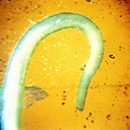Patients who have overwhelmed kidney transplants are afraid even to hear the word «Rejection». Unfortunately, the episode of rejection can develop, despite all efforts to prevent it. However, if we reveal rejection in the earliest stages and quickly start treatment, then in most cases the process can be stopped and avoiding the irreversible kidney damage.
Content
Patients who have undergone kidney transplant, their relatives and friends are afraid even hearing the word «Rejection». Most of all they scares that after all the difficulty experienced, the new kidney will not be able to save and will have to return to dialysis.
Unfortunately, the episode of rejection can develop, despite all efforts to prevent it. However, if we reveal rejection in the earliest stages and quickly start treatment, then in most cases the process can be stopped and avoiding the irreversible kidney damage. Understand what rejection is and find out what to do to overcome it – This is what should help you and your loved ones get rid of anxiety.
What is - rejection?
In a word «Rejection» I heard something sudden and inevitable. In fact, rejection does not always happen quickly and rapidly, and with adequate medical care you can cope with it. During the episode of the rejection, the transplanted kidney (it is also called «Allogenic transplant») suffers and cannot fully function. But this does not always mean that the kidney will completely stop working. Modern transplantology can make a lot in order to slow down the rejection and restore the kidney function.
Currently, the methods of selecting the appropriate authority before transplantation, technique of operation, as well as drugs that are used after surgery to prevent rejection, have become much better and more perfect. Therefore, the episodes of rejection or the termination of the function of the transplanted kidney are ever less. However, in some patients, one or even several episodes of rejection are quite expected. Let's try to figure out why your body can «do not recognize» Transplanted kidney.
 In our body there is an amazing natural defense system. It is called «immune system» and protects us from everything alien – that is not part of the body. Such «Interventory» are bacteria, viruses, fungi, helminths, as well as a transplanted kidney fabric or another organ taken from another person. Even the usual cold or flu activate the entire immune system, what to talk about the whole alien organ!
In our body there is an amazing natural defense system. It is called «immune system» and protects us from everything alien – that is not part of the body. Such «Interventory» are bacteria, viruses, fungi, helminths, as well as a transplanted kidney fabric or another organ taken from another person. Even the usual cold or flu activate the entire immune system, what to talk about the whole alien organ!
Our immune system – This «army», consisting of «soldier», which are special cells that produce protective substances. Here's how they fight. «Soldiers advanced detachment» – These are blood cells called «lymphocytes» (one of the types of white blood cells – leukocytes). When the immune system is found with someone else's cloth or a cell (such an alien substance is called «antigen»), lymphocytes immediately get into operation to destroy «Chuzhakov».
Antigens –These are protein substances. Each of us has its own individual set of antigens. The kidney of another person has its own antigens, which differ from your. That is why your body perceives the transplanted kidney as something alien. Lymphocytes recognize alien antigens and attack them. Specific types of lymphocytes form substances called «antibodies». These antibodies are «Weapon» against «invaders». New and new lymphocytes are rushing to the noise of battle. Imagine immune response – This is exactly something like a small battle that is played in your body.
Usually yours «Army self-defense» very deftly looking for and destroys the enemy.
The problem is that the immune system is valid independently of your will. Lymphocytes do not care who in front of them – virus conventional cold or transplanted kidney, which you need your body. Lymphocytes, finding other people's antigens, as always, want to come to your help, they attack the graft, perceiving it as «enemy», And then the episode of rejection can develop. WITH «Lymphocyte points of view», If we assume that the lymphocytes have a point of view – They won, and for you for your doctor – This is an extremely unwanted post-transplant complication.
Depending on when and how the episode of rejection is developing, several types of rejection are distinguished, which you could hear from doctors. The most common type of renewal – This is sharp rejection. The risk of developing acute rejection is highest in the first months after surgery. But during the first year, you must be on the emergence of any rejection symptoms. Acute rejection can sometimes develop and later, therefore, it is necessary to prevent regular laboratory tests and the corresponding changes in the drug intake scheme.
Symptoms of rejection
What are the symptoms of the starting rejection? In some cases, no physical disorders may not be. But sometimes rejection makes itself felt certain signs. There are several symptoms that cause alertness from transplant doctors. Their timely detection allows you to take the necessary measures to rescue. Therefore, you must follow such vital indicators daily as a pulse and body temperature. You can detect fever, soreness in the postoperative seam area, swelling, a decrease in the amount of urine, a rapid pulse, an increase in blood pressure, an increase in weight or feel malaise. In this case, you must immediately report on all the deviations detected by your doctor-transplantologist.
How to prevent rejection?
After surgery (and sometimes before it), you will prescribe medication to prevent rejection. They're called «Immununopressants» or «Immunosuppressors», Because their goal – suppress your immune system so that it does not attack and damaged a new kidney. The mechanism of action of drugs used in transplantation of drugs is different, but they all, one way or another, suppress the activity of lymphocytes. And also as lymphocytes do not distinguish the enemy of your body (malicious influenza virus) and its friend (transplanted kidney) and immunosuppressants do not distinguish lymphocytes that are struggling with infectious agents, and attacking transplants. Therefore, patients receiving immunosuppression are characterized by increased susceptibility to infections and need additional protection.
In addition, both the therapeutic effect of immunosuppressants and their side effects, directly depend on the dose of the drug. Choose a combination of drugs and work out dosages necessary to prevent rejection and safe from the point of view of complications, only a specialist doctor on the basis of a comprehensive survey can.
From you depends the timeliness of the examination and the fulfillment of all the recommendations of the doctor. In other words, for your safety and for the well-being of your kidney, you need active cooperation with your doctor. Overcoming fear and concern about the rehabilitation of transplanted kidney begins with the formation of a positive attitude to the problem. This means the embodiment of good intentions into cases.
One of the patients who was transplanted by the kidney said that every morning mentally refers to the cells of his immune system:«Hey you, buddies, this kidney – our new overall friend. You are not very sorned with her there, let's easier – And we will all be much better!» We do not know exactly whether such autotraining works on the immune system, but we know the main – that this patient behaves very correctly. He says:«I always observe all the instructions of my transplant doctor and following all his advice, to the last letter. This means that I...
- I accept all the medications exactly as I was told;
- Every day I check the most important health indicators;
- I regularly hand over the necessary tests;
- I try to avoid infections and other diseases, as soon as possible;
- I do physical exercises, I eat well, but I'm watching not too add in weight ».
He claims: «If you comply with all these rules, there is nothing more about rejection to worry. If you can put it, I «rejected» Rejection. So i can not worry and do what is really important for me – Enjoy every day of the new life that I gave me a new kidney».
In modern transplantology, the main base drug is cyclosporine, with the advent of which the direct and remote results of the kidney transplant reached a fundamentally different level compared to «Docyclosporin Eroy».
This drug requires a very serious relation to the selection of a dose, since the reduction of its blood content is below «Therapeutic dose» leads to a sharp drop in efficiency, and with an increase in concentration, even slightly, above «Therapeutic dose» Serious side effects develop. Therefore, every patient receiving cyclosporine should be well aware of how and why the concentration of the drug is determined, and which indicators should be focused on.
Thanks to modern medicine – immunosuppressants and improvement of the methods of treatment used in transplantology, many of the patients do not happen any episode of rejection. If you follow the instructions of your transplant host, and lead a healthy lifestyle, you will have a wonderful chance to keep a new kidney that will give you many years of life.









